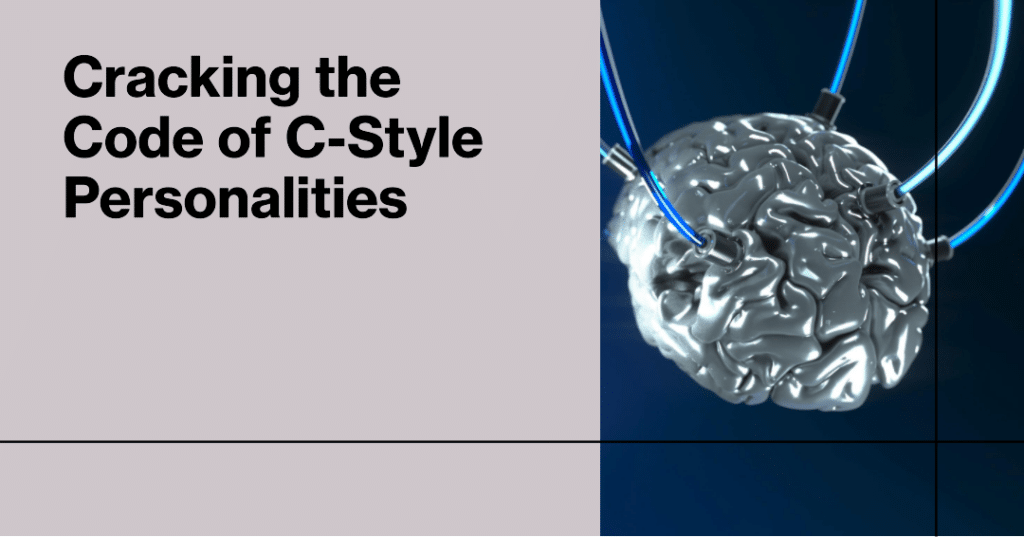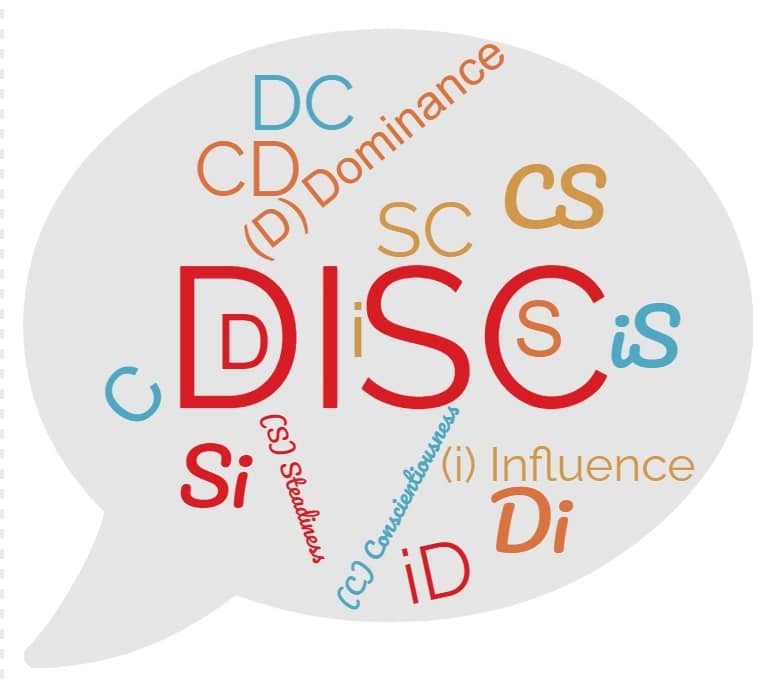Do you often put time into analysis and details when given a task? Do you find yourself feeling frustrated when you’re asked to make a quick decision without time to think things through? You might be someone with a C (Conscientiousness) DISC personality style. Let’s dive into the characteristics and best practices when working with the C-styles.
Cooper Consulting Group offers many different DISC training workshops and certifications. Call us today for a free consultation.
Characteristics of a C-style personality
The C-style on the DISC map intersects at the reflective and skeptical dimensions. People with the C-style prioritize accuracy and strive to maintain stability. While other styles (such as D and I) are more likely to process their thoughts out loud, C-styles are more reserved and like to think before sharing. They tend to use systematic and analytical approaches to tasks. They want to ensure their method is tactful and that it takes facts into consideration. Sometimes, the C-styles might get too wrapped up in the details, causing them to lose out on quick opportunities.
People with the C-style will stick to objective processes to meet their goals. They like to demonstrate their expertise and attention to detail. They are likely to produce high-quality work because they have taken the time to ensure that everything is correct and has been tested. They might be somewhat hard on themselves for being wrong compared to other styles. Although this aligns with their desire for accuracy, it might stray them away from taking risks in the future. Their quiet diligence and ability to find creative yet practical solutions are valued by others around them.
What should one remember to do when working with C Personality Types?
When working with someone with a C style, it’s important that you give them enough time to complete a task. If you ask them to assist on a project, you’ll want to provide sufficient details so they feel comfortable with the planning process. Ambiguity and lack of clarity will leave them frustrated. Make sure you are leading your approach with facts, as they like to separate emotions from their work. C-styles fear criticism because they like to show that they are competent and knowledgeable in their work. Reassure them that they are doing their job well this will motivate them to continue to do their best.
C-styles tend to be skeptical and will ask a lot of probing questions, so be prepared to back up your thoughts before presenting them. Keep in mind not to take their lack of response as a lack of interest. C-styles will internally process their thinking and need time to state their ideas and opinions. Their reserved nature may come off as distant, but it’s likely that they are just taking the time to make sure they are producing quality work.
What are the possible areas of opportunities of the C DISC style?
People with the C style can appear too critical of others. They might feel that others are not meeting their high standards and perhaps be a bit nit-picky when it comes to correcting something. While they prefer to take their time to ensure accuracy, their over-analysis may prevent them from making a final decision. The C-styles fear the loss of control, so they tend to be hesitant when delegating tasks to others. As with all styles, there is always room for growth.
To practice working on some of these areas, C-styles need to decide when to compromise for the good of the team. When possible, they should resist being overly critical. This may even help with relationship building. Similarly, joining social events might require more energy because C-styles like to focus on tasks and logic, but other styles, such as the I and S styles, will appreciate the social effort.
What is the ideal environment for the C DISC Styles?
The ideal environment for the C-style is predictable, stable, and moderate-paced. They prefer to work in an environment where logic and high standards are prioritized. C-styles enjoy creating efficient systems and procedures that create consistency within their teams or organizations. They also prefer to work independently, allowing them to dissect a problem and develop an ideal solution. Because they tend to overanalyze, you may need to check in on them to keep them on track. Provide them with autonomy, but be sure to set clear deadlines so they can focus on moving forward.
What do C DISC Styles contribute to a team?
People with the C style bring perspective to the table, which can help with making quality decisions. As excellent analysts, they aren’t afraid to point out flaws or problems that may deter a project. Their ability to think of systematic approaches creates consistency. This is especially helpful when new ideas are implemented and require procedures. C-styles are even-tempered, meaning they are unlikely to act irrationally or impulsively in the workplace. They aim to do their job thoroughly and well, which is something nearly everyone can appreciate.
How does Type C personality deal with stress?
A common stressor for the C-style is not having all the facts to feel confident in making their decision. Similarly, they do not like being forced to move quickly or under pressure. This will make them feel unprepared as they may not be able to meet their high standards. Once their plan is set, they might be reluctant to making changes requested by others. Having to change what they believed to be a well-thought-out and considered plan may leave them feeling frustrated or defeated. C-styles anticipate social events where they are asked to engage in small talk. This might lead them to avoid these situations altogether.
Everyone can benefit from stress-relieving practices in the workplace. However, typically, one needs to have self-awareness in understanding what stresses them out.
Do you think you might be the contentiousness DISC style? Consider taking the DISC assessment to know for certain. Please get in touch with Cooper Consulting Group at info@cooperconsultinggroup.com. From there, you can schedule a personalized workshop for you and your team with a certified facilitator who is trained in navigating these discussions.




